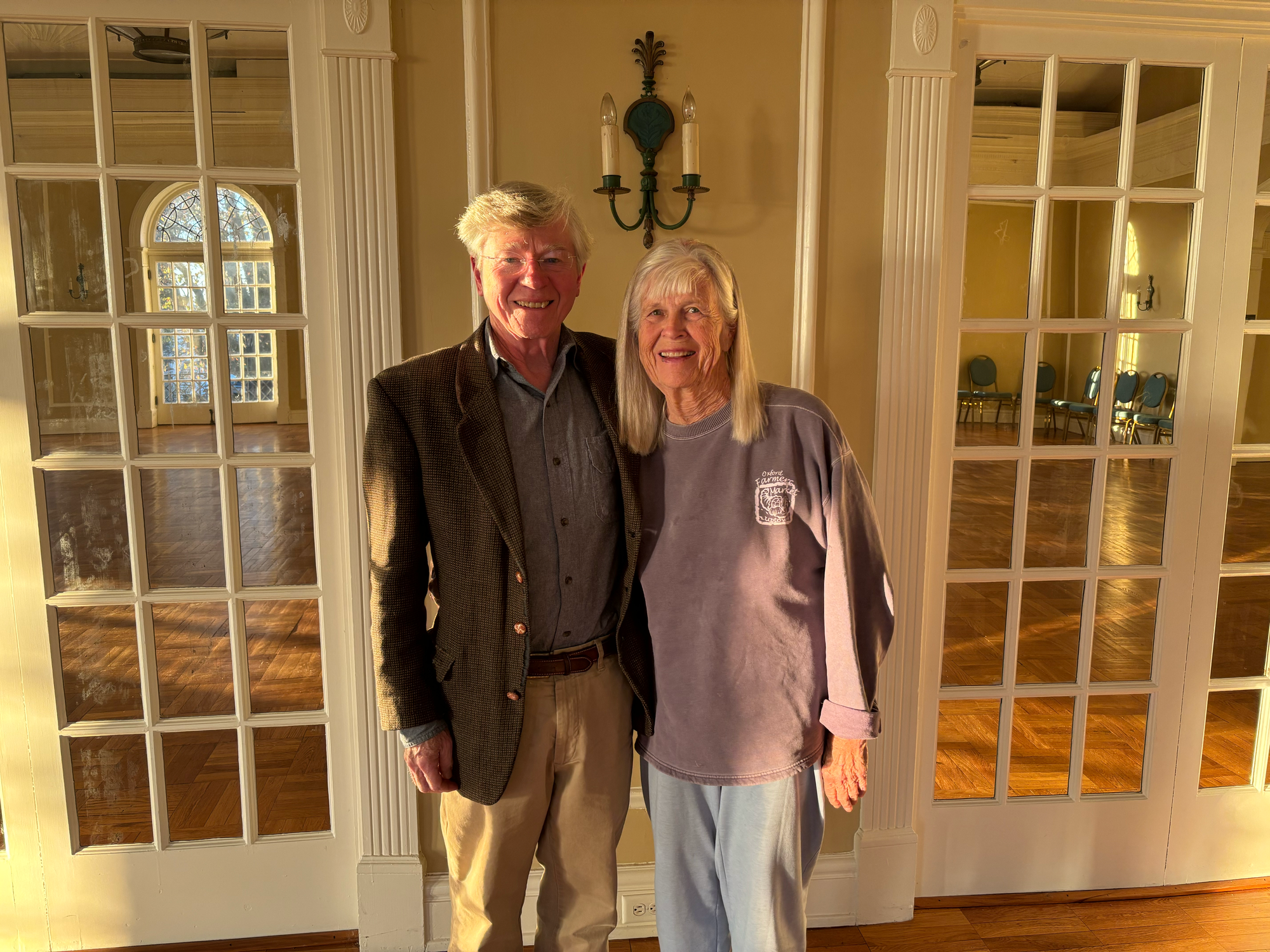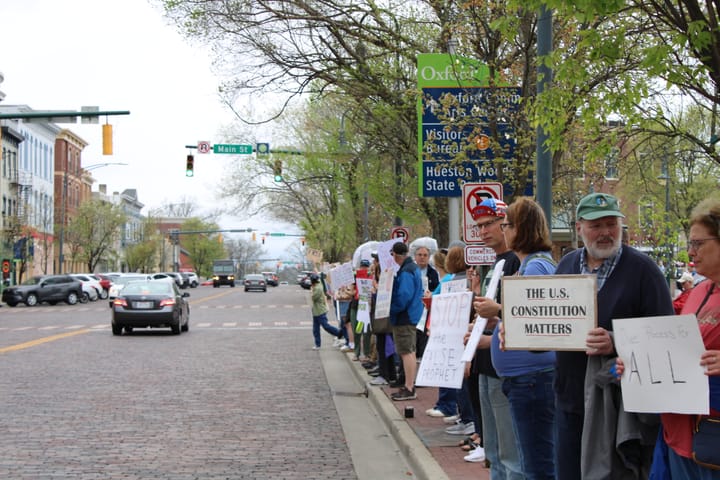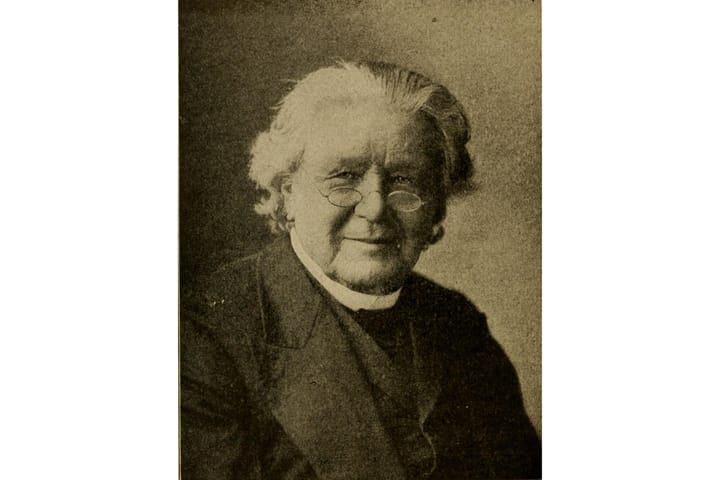Couple keeps dances alive in Oxford with folk club
Judy and Warren Waldron have been sharing their love of music and dance with the Oxford community for decades, most recently holding a contra dance for residents.

Music and fun filled the Brant Ballroom in the Oxford Community Arts Center (OCAC) on Nov. 1 as the Oxford Folk Club held its first of two contra dance events for the year.
These dances used to be held monthly, however, due to a variety of factors including a lack of turnout, the club started holding them twice annually instead. The dances occur once a semester, with the next one scheduled for March 7.
Warren R. Waldron, who helped start the Oxford Folk Club, first met his wife, Judy, through a shared love of folk and classical music. For Warren, the most rewarding part of being involved like this is seeing the community reactions.
“Seeing people’s response to the music is fun. I mean, it’s uplifting stuff, square dance music,” Warren said. “The fiddle drives a rhythm that is irresistible. People just start moving their feet.”’
Originally from Cleveland Heights, Warren attended Miami University as a French major, later dropping out and returning to study theater, landing him in Oxford with Judy, who is from Springfield.
The two both have a shared love for music, specifically classical and folk. When he was younger, Warren inherited a banjo from a friend. At the time, he wasn’t sure what to do with the unfamiliar instrument, but he quickly fell in love.
“The Beatles weren’t using a five string banjo, and neither were the Rolling Stones,” Warren said.
After meeting, Warren and Judy were in a band together, where they played a variety of weddings, as well as frat parties and other events. While Warren started out on the banjo, he started playing the fiddle because other people, including Judy, were already playing the banjo.

In 1977, 1978 and 1979, the band spent their summers playing at Cedar Point, an amusement park in Sandusky. In 1980, Judy and Warren returned to the park as a duet, later starting their “dancing business” in 1981.
They first started having gatherings under the water tower in Oxford, and later began to hold their dances in the Shriver Center on Miami’s campus. At one point, the dances were held in the basement of Holy Trinity Episcopal Church.
“We did square dances for Miami, students, faculty, townspeople, farm folks,” Warren said. “People came from all around to do it, and had a great time doing it.”
From there, the Oxford Folk Club was formed.
They later changed the style of dance from square to contra, which is what it is today. Instead of forming a square, Warren started to notice students lining up in a contra line. He then theorized that contra dancing was going to come on a national basis to America, and it did.
“I can see the future of country dancing in America evolving right in front of our eyes,” Warren said.
Judy noted how square dancing was a dying art form, except for in clubs that people had to pay to be a part of. However, contra dancing was growing in popularity.
“Our dances are passed down by oral tradition, and our music is passed down by oral tradition, and they are still doing these square dances,” Judy said. “Now, the contra dances were popular amongst the younger people.”
Now, these dances are growing less popular, especially in rural communities. Oftentimes, people have to travel to larger cities to participate, but Warren and Judy are working to preserve that art form locally with the Oxford Folk Club.
In addition to the dances they throw twice a year, Judy and Warren play old-time music every Saturday morning at the Oxford Farmers Market, helping keep this tradition of old folk music alive.
“We got a new band that moved to town, and we wanted to do dancing again, so we decided to come to the Arts Center to see if they would like to do dancing in their wonderful ballroom and they thought it was a great idea,” Judy said.
Judy and Warren said their dances usually get a fairly good turnout, and the community responds very positively to the music. They said they are thankful that OCAC supports traditional arts, especially because they have to have people there to set up and tear down before their events.
“I’m grateful to the Oxford Community Arts Center, which hosts the Oxford area community theater and all sorts of art stuff," Warren said, "that they’re willing to embrace us as part of the arts program."




